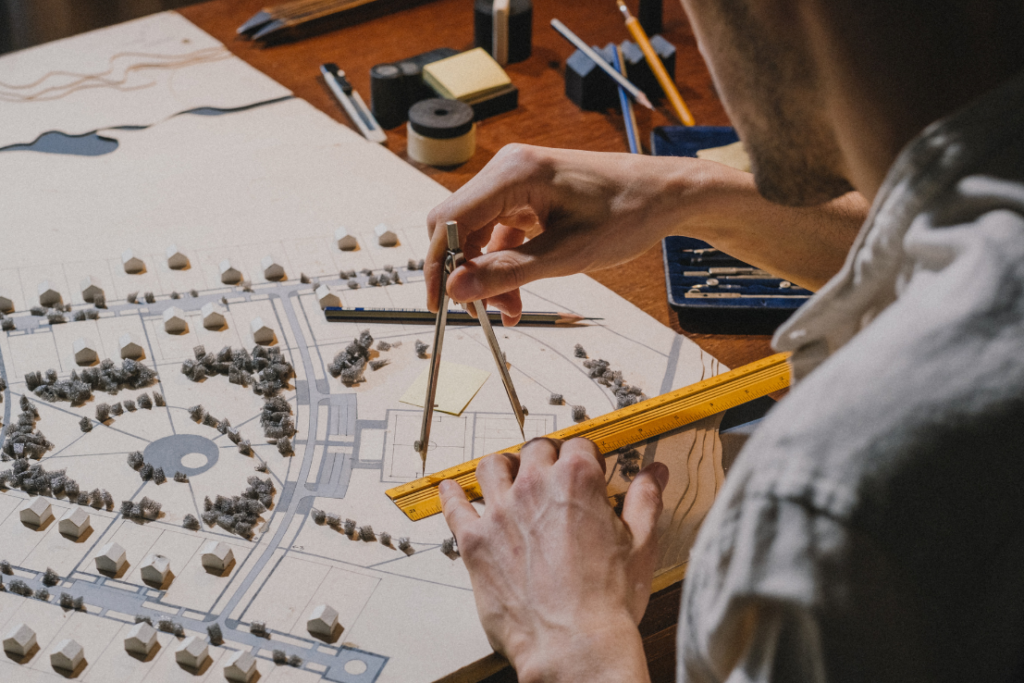How Architecture Design Services Can Transform Your Space?
Introduction
Your living or working space is more than just walls and a roof it’s an extension of your personality, lifestyle, and aspirations. Whether you’re building a new home, renovating an office, or redesigning a commercial property, architectural design services play a crucial role in shaping functional, aesthetic, and sustainable spaces. Architects don’t just draw blueprints; they create environments that enhance comfort, productivity, and well-being. In this blog, we’ll explore how professional architecture design services can completely transform your space, adding value, efficiency, and beauty to your project.
1. Maximizing Functionality & Space Utilization
One of the most significant benefits of hiring an architect is their ability to optimize space. Many homes and offices suffer from poor layouts, awkward corners, wasted square footage, or inefficient traffic flow. Architects analyze how a space is used and redesign it to improve functionality.
-> Smart Storage Solutions: Architects integrate built-in storage, multi-functional furniture, and space-saving designs.
-> Ergonomic Layouts: They ensure that rooms flow naturally, reducing unnecessary movement and enhancing convenience.
-> Customized Designs: Whether it’s a compact apartment or a sprawling villa, architects tailor spaces to fit your exact needs.
By rethinking spatial arrangements, architects can make even small spaces feel larger and more inviting.
2. Enhancing Aesthetics & Visual Appeal
A well-designed space isn’t just practical, it’s visually stunning. Architects bring creativity and artistic vision to projects, ensuring that every element from materials to lighting works harmoniously.
-> Balanced Proportions: Architects use principles of symmetry, scale, and rhythm to create visually pleasing structures.
-> Material Selection: They recommend high-quality, durable, and aesthetically appealing materials that suit your style.
-> Lighting Design: Natural and artificial lighting are strategically planned to enhance mood and functionality.
Whether you prefer modern minimalism, rustic charm, or industrial aesthetics, architects translate your vision into reality.
3. Sustainable & Eco-Friendly Designs
With growing environmental concerns, sustainable architecture is no longer a luxury; it’s a necessity. Architects incorporate eco-friendly practices that reduce energy consumption and environmental impact.
-> Energy Efficiency: Passive solar design, proper insulation, and energy-efficient windows lower utility bills.
-> Green Materials: Recycled, non-toxic, and locally sourced materials minimize carbon footprints.
-> Water Conservation: Rainwater harvesting systems and low-flow fixtures promote sustainability.
Sustainable designs not only help the planet but also improve indoor air quality and long-term cost savings.
4. Improving Natural Light & Ventilation
A poorly lit or stuffy space can feel uncomfortable and unwelcoming. Architects strategically position windows, skylights, and open spaces to maximize natural light and airflow.
-> Open Floor Plans: Removing unnecessary walls allows light to travel freely.
-> Strategic Window Placement: Large, well-placed windows brighten interiors while offering scenic views.
-> Cross-Ventilation: Properly positioned openings ensure fresh air circulation, reducing reliance on HVAC systems.
Natural light boosts mood and productivity, making spaces healthier and more enjoyable.
5. Increasing Property Value
Investing in professional architectural design isn’t just about immediate benefits it’s a long-term investment. A well-designed property attracts higher resale values and rental demand.
-> Unique Selling Points: Custom designs, premium finishes, and smart layouts make properties stand out.
-> Future-Proofing: Architects anticipate trends and design adaptable spaces that remain relevant for years.
-> Regulatory Compliance: They ensure designs meet building codes and zoning laws, avoiding legal issues.
Whether for personal use or commercial purposes, architectural excellence enhances marketability.
6. Personalization & Customization
Cookie-cutter designs lack character. Architects work closely with clients to create spaces that reflect individual tastes and lifestyles.
-> Tailored Interiors: From bespoke staircases to custom cabinetry, every detail is personalized.
-> Cultural & Lifestyle Integration: Designs incorporate cultural elements, hobbies, and family needs.
-> Smart Home Integration: Architects seamlessly incorporate technology for automated lighting, security, and climate control.
Your space should tell your story architects make that possible.
7. Seamless Project Execution
Architects don’t just design; they oversee the entire construction process, ensuring smooth execution.
-> Collaboration with Contractors: They coordinate with builders, engineers, and interior designers.
-> Budget Management: Architects help allocate resources efficiently, preventing costly mistakes.
-> Quality Control: They supervise construction to ensure designs are implemented accurately.
With an architect’s guidance, projects stay on time, within budget, and up to standard.
Conclusion
Investing in professional architectural design isn’t just about creating a building it’s about crafting an experience. With Savjani A&E Consultants, you gain access to innovative solutions that not only maximize space but also boost property value. The right design can elevate your lifestyle and leave a lasting impression. Architecture design services go beyond aesthetics they transform spaces into functional, sustainable, and inspiring environments. Whether you’re building a dream home, revamping an office, or developing a commercial property, Savjani A&E Consultants brings the expertise to ensure that every square foot is optimized for beauty, efficiency, and longevity.


